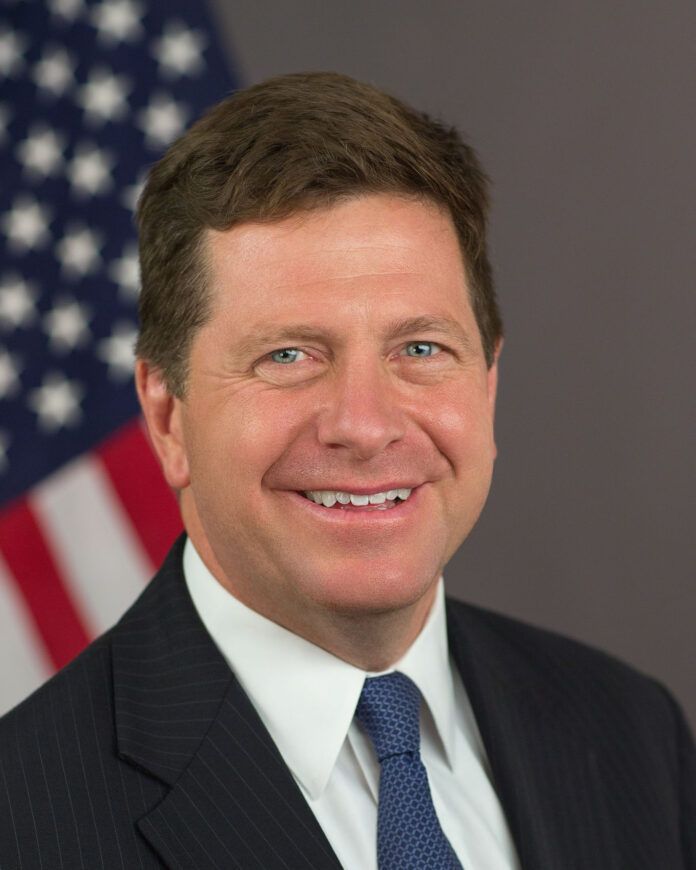Bolstering public capital markets and cybersecurity are expected to be key priorities.
Jay Clayton — the man chosen by President Donald J. Trump to lead the nation's agency that polices Wall Street — and the team he's assembled are expected to continue enforcement but also shift priorities to finance and cybersecurity issues.
In June, the Securities and Exchange Commission (SEC) announced the appointment of co-directors of the Division of Enforcement, a key unit of the agency. Acting Director of the Division of Enforcement Stephanie Avakian and former federal prosecutor Steven Peikin will be sharing the role, something that's not unprecedented. (In 2013, Acting Director George Canellos and former federal prosecutor Andrew Ceresney, were named to the dual role under Clayton's predecessor Mary Jo White.) And the previous month, Bill Hinman was named director of the agency's Corporation Finance division.
“These appointments are very encouraging for SEC watchers hoping for an active and independent commission,” says N. Peter Rasmussen, a senior legal editor for Bloomberg BNA.
But few expect Clayton, who brings with him a background as a deal-making attorney, to carry a big stick.
Denver Edwards, a principal at the law firm of Bressler, Amery & Ross and a former SEC attorney, says Clayton's leadership will be “more focused on regulatory and finance issues, rather than enforcement issues.”
Edwards maps out Clayton's objectives for the SEC as:
• capital formation (IPOs),
• efficient markets (regulatory rollback),
• investor protection (enforcement).
“These goals are consistent with the SEC's mission,” he says. “Strong corporate governance (system of rules, practices and processes that balances the interests of stakeholders) and board leadership will be necessary to achieve them.”
But, Edwards adds, “It would be a mistake to think that Clayton's SEC will be soft on enforcement. Clayton states that he will ‘vigorously enforce' the law, but will seek to target individual bad actors because he believes individual accountability drives behavior more than corporate accountability. Expect fewer prosecutions against companies.”
Indeed, under previous SEC chairman White, the agency had a strong focus on enforcement actions.
A report by NYU Pollack Center for Law & Business, in collaboration with Cornerstone Research, found since April 2013 when White was sworn in, SEC enforcement actions have jumped.
According to the report, the increase in SEC actions against public company–related defendants from FY 2013 through FY 2016 was 130% as compared to a mere 61% increase in all independent or stand-alone enforcement actions.

Actions for the first half of 2017 were still at elevated levels, but it's unclear how things will play out now under Clayton.
“You usually don't see changes right away, even when there are changes in leadership,” explains Anat Carmy-Wiechman, associate director of the NYU Pollack Center. “It takes some time.”
When she and her colleagues looked at changes after White came on board, “We saw the number of cases went up gradually.”
Despite the expected easing of enforcement, Clayton spoke about being tough on bad players.
In a statement he read to Congress during his confirmation hearings, Clayton said, “I am 100% committed to rooting out any fraud and shady practices in our financial system.”
But he added:
“It is clear that our public capital markets are less attractive to businesses than in the past. As a result, investment opportunities for Main Street investors are more limited. Here, I see meaningful room for improvement.”
To that end, the SEC announced in June all companies looking to go public could file the IPO paperwork confidentially, a move Clayton said in a statement could lead to “efficiency in our processes to encourage more companies to consider going public, which can result in more choices for investors, job creation and a stronger U.S. economy.”
Another area that is expected to be of great interest to Clayton, from a regulatory and enforcement side, is cybersecurity, maintains Deborah Meshulam, a securities enforcement attorney with DLA Piper.
Clayton has a strong background in cybersecurity and he has publicly backed the bipartisan Senate Cybersecurity Disclosure Act, which requires companies disclose whether directors have a cybersecurity expert on the board of directors.
“This can impact directors and senior management because they have the obligation to properly manage and disclose cyber risk,” Meshulam notes.
Ultimately, she continues, “I anticipate we're likely to see some different focus with this commission than prior but the core enforcement goals of the SEC will continue. The chairman made that very clear.”



